George Washington was a colonel in the Virginia militia, master of Mount Vernon, founding father, commander-in-chief of the Continental Army, first president of the United States, and Father of his Country. The nation’s capital, many other towns and thousands of streets carry the Washington name. Yet, George Washington “was far less powerful in the tiny emotional domain of his nuclear family.”1
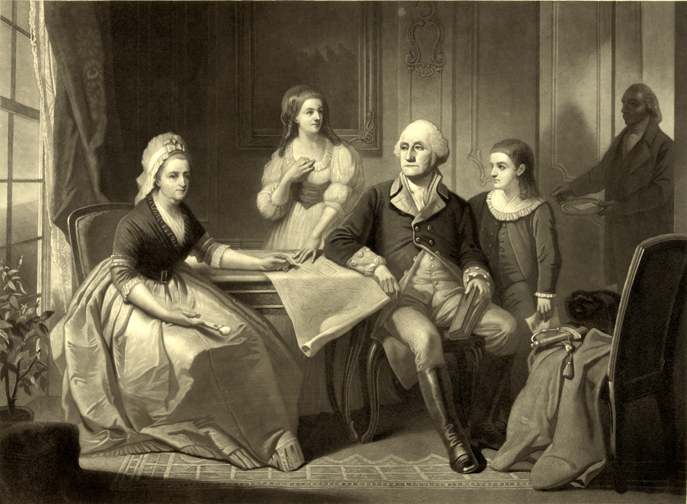
On January 6, 1759, twenty-six-year-old George Washington married Martha Dandridge, the widow of Daniel Parke Custis. She brought into the marriage great wealth in land, slaves and money as well as two children, daughter Martha, known at Patsy, age two years and son John Park Custis, known as Jacky, age four years. (Two other of Martha’s children, Daniel and Frances, died in infancy). Washington had no children of his own. Instead, he readily assumed responsibility for the care and education of Martha’s children, and later, her grandchildren and her niece, the children of his deceased brother Samuel, as well as helping other young relatives.
In 1761, Washington spent £48 for the passage from Britain to Virginia of Walter Magowan, a Scot, to serve as live-in tutor for Patsy and Jacky Custis. For the wage of £35 a year, Magowan schooled the children in the English language together with arithmetic, Latin and Greek. Magowan remained at Mount Vernon until 1767. The following year Washington contacted the Englishman Jonathan Boucher who operated a small school for boys at his home near Fredericksburg, Virginia, to ask him to take Jacky as a pupil. Jacky was “a boy of good genius, about 14 years of age, untainted in his morals, & of innocent manners. Two years and upwards he has been reading of Virgil, and was . . . entered upon the Greek testament, though I presume he has grown not a little rusty in both.” Jacky was “a promising boy and will possess a very large fortune—add to this my anxiety to make him fit for more useful purposes than a horse racer.”2 Washington arranged for Boucher to take Jacky under his “peculiar care of, and a watchful eye to him,” to enter the deep study of British and European literature as well as Latin, Greek and mathematics.
In July 1768, at a cost of £42 a year for schooling, board and lodging for Jacky, his servant, and care of two horses, the boy entered Boucher’s school. Jacky showed scant interest in studying. In a detailed letter written within a month of Jacky’s arrival, Boucher informed Washington: “Master Custis is a boy of so exceedingly mild & meek a temper . . . that possibly he might be made uneasy by the rougher manners of some of his schoolfellows.” He has “all the harmlessness of the dove [but lacks] the wisdom of the serpent. He is far from being a brilliant genius. . . . Parents are generally partial to grant vivacity & sprightliness of genius in their children. He seems to be very apprehensive of your displeasure. I urge you & his mamma, to spare rebukes, as much as he certainly deserves them.”3
Many anxious letters passed between Boucher and Washington concerning Jacky’s “love of ease, & love of pleasure … I never did in my life know a youth so exceedingly indolent, or so voluptuous,” wrote Boucher. “He has contrived to learn a great deal of idleness & dissipation. He is perpetually doing something or other that displeases me … One person inspires him with a passion for dress, another for racing, foxhunting. [Others] led him to talk of guns & rifles, with much more satisfaction than I can persuade him to talk of books, or literary subjects.”4
Well aware of Jacky’s great inherited wealth, Boucher offered to accompany him on a three-year gentleman’s tour of European “countries where arts & sciences have been most successfully cultured.” Such a tour could “divert him from a very wrong system, though a very common one with the youth of Virginia [and] will stimulate him to pursue his studies with greater earnestness, when he recollects how often he must be put to the blush, if he appears illiterate amongst men of letters.”5
Washington squelched an idea that would “cost £1600 per annum as it would exceed Jacky’s income, & consequently break in upon the capitol, which might be deemed imprudent in me to allow, without the sanction of the court: who are the constitutional guardians of orphans.”6
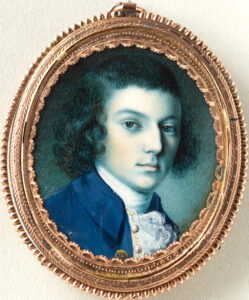
In 1773, Washington was shocked to learn that nineteen-year-old John Parke Custis was engaged to sixteen-year-old Eleanor (Nelly) Calvert, a member of one of the wealthiest families in Maryland. “His youth, inexperience, and un-ripened education,” wrote Washington on April 3, “are, and will be, insuperable obstacles to the completion of the marriage. As his guardian, it is my indispensable duty to carry him through a regular course of education, many branches of which he is totally deficient of, and, to guard his youth to a more advanced age before an event, on which his own peace, and the happiness of another is to depend.” Washington insisted that the youngsters wait several years before they marry.7 In June 1773, Jacky’s sister Patsy died at age seventeen in an epileptic fit. Her share of the Custis estate now went to Jacky, her only surviving sibling. Jacky promised his step-father to “postpone entering into the engagement till his studies were finished.”8
At Boucher’s recommendation in May 1773, Washington travelled to New York to register Jacky for admission to King’s College. The college president, Oxford-educated Myles Cooper, offered to personally supervise the boy’s education in languages, philosophy and mathematics. Despite his promises to study, Jacky continued to display “a love of ease and a love of pleasure.” After seven months, the lovesick boy dropped out and married his Nelly on February 3, 1774. George Washington attended the wedding.
On July 3, 1775 Washington took command of the Continental Army outside Boston. Despite the great demands of the new nation at war, he found time to guide the newly-married Jacky Custis and Nellie Calvert. Jacky planned to sell his Pleasant Hill Plantation and buy Abingdon Plantation in Fairfax Country.9 Showing poor business acumen, he offered £12,000 for Abingdon; with interest compounded over twenty-four years, the final sum would reach £48,000. “No Virginia estate,” responded Washington to his gullible stepson, “can stand simple interest; how then can they bear compound interest?” Jacky’s grandiose schemes and expectations of great profit “only exist in the imagination, and that year after year will produce nothing but disappointment and new hopes.”10
In 1781, at the head of the Continental Army on his way to besiege a British army at Yorktown, Virginia, Washington briefly returned to his beloved home, Mount Vernon. Seeking glory, Jacky convinced his stepfather to appoint him an aide-de-camp. During the siege of Yorktown, twenty-five-year-old Jacky Parke Custis died of camp fever.
It had “always been my intention, since my expectation of having issue has ceased,” wrote Washington, “to consider the grandchildren of my wife in the same light as I do my own relations.”11 At the close of the Revolutionary War, Martha and George Washington, now in their early fifties, returned to Mouth Vernon. Living with them were two-year-old Eleanor and seven-months old George Washington Parke Custis, children of the deceased Jacky Custis. Also moving to Mount Vernon were five-year-old Harriot, seven-year-old Lawrence Augustine and ten-year-old George Steptoe Washington, children of Washington’s deceased brother Samuel. The teenage Frances (Fanny) Bassett, daughter of the deceased Anna Maria Dandridge (Martha’s sister) came to live at Mount Vernon in 1785. Washington declined an invitation to visit Paris because Martha was “too far advanced in life, & is too much immersed in the care of her little progeny to cross the Atlantic.”12
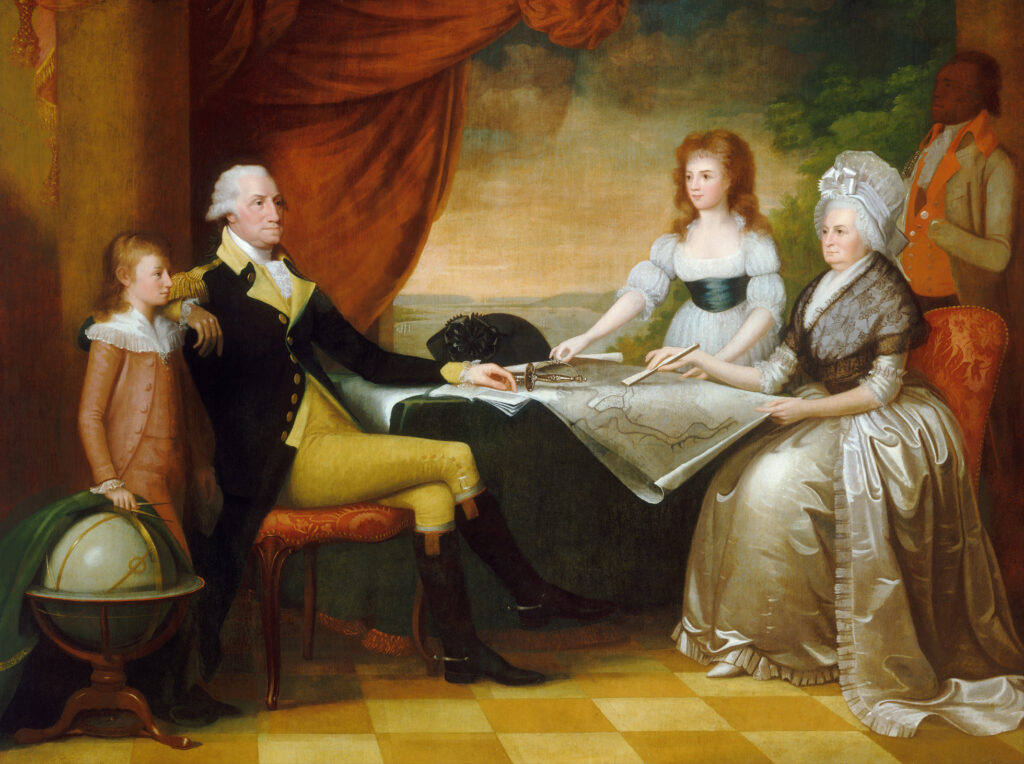
Since infancy, George Washington Park Custis displayed an “unconquerable disposition to indolence in everything that did not tend to his amusements.”13 Like his father, he was pleasure-seeking, lazy, and lacked discipline The grandparents called him “Washy” or “Washington.” The boy was “always spoilt by his grandmother,” and was Martha’s “pride of her heart.” His grandfather “was too softly nurturing under his roof.” With the faulty judgement of a doting grandparent, Washington believed that Washy showed remarkable promise. “It is my intention is to give him a liberal education,” wrote George Washington on November 10, 1785. He considered sending Washy to Great Britain to be educated by a gifted scholar. “Fifty or sixty-pounds sterling per annum, with board, lodging, washing & mending, in the family, is the most my numerous expenditures will allow me to give. . . . the gentleman must be a classical scholar, & capable of teaching the French language grammatically: the more universal his knowledge is, the better … In Scotland education is cheap, & wages not so high as in England: but I would prefer, on account of the dialect, an Englishman to a Scotchman, for all the purposes I want.”14
When Washy was eight and Eleanor ten, they moved to New York with President George Washington and First Lady, Martha Washington. Washington Custis entered the College of Philadelphia. Tobias Lear, secretary to President Washington, was tasked to keep an eye on the boy’s progress. The news was not good. “I am sorry to say that the progress which Washington makes at his school by no means justifies the high character given of that seminary. I have lately taken several occasions to examine him, and have been surprised to find that he seems to have made no advances in the Latin since he left his instructor in New York. In reading & writing it is evident he has lost much, and . . . in arithmetic he cannot tell 100 from 1000.”15
Washington, on several occasions, even while serving as president, reminded Washy of the importance of education, of a sterling character and how to cultivate good habits:
Rise early, that by habit it may become familiar, agreeable—healthy—and profitable. It may for a while, be irksome to do this; but that will wear off; and the practice will produce a rich harvest forever thereafter; whether in public, or private walks of life. Make it an invariable rule to be in place at the usual breakfasting, dining, and tea hours. It is not only disagreeable, but it is also very inconvenient, for servants to be running here & there, and they know not where, to summon you to them, when their duties, and attendance, on the company who are seated, render it improper. Time disposed of in this manner, makes ample provision for exercise & every useful, or necessary recreation; at the same time that the hours allotted for study. I shall expect you will confine yourself to your studies; and diligently attend to them; endeavoring to make yourself master of whatever is recommended to, or required of you, instead of running up & down stairs, & wasted in conversation with anyone who will talk with you, will enable you to make considerable progress in whatsoever line is marked out for you: and that you may do it, is my sincere wish. Idleness is disrespectful under any circumstances, productive of no good.16
When Washy was fifteen his ever-hopeful grandfather sent him to Princeton College to study under the personal supervision of its president, Samuel Stanhope Smith. Washington advised the boy to
endeavor to cultivate the good will of all your fellow students. I would guard you against imbibing hasty and unfortunate impressions of anyone … Let your judgement always be well balanced before you decide. . . . Apply diligently to your studies. . . . It is you who will derive immediate benefit from them. Your country may do it hereafter. The more knowledge you acquire the greater will be the probability of you succeeding, and the greater your thirst will be.17
Washy attempted to placate his step-father by saying his studies at Princeton were going well. “I am studying the principles and uses of history [and applying] my spare time wholly to reading [to build up] a fund of information, serviceable in society.”18 Washington was pleased that Washy was “progressing well” in the study of history. “I do not hear you mention anything of geography or mathematics, both necessary branches of useful information, nor the study of Latin and French.”19
Samuel Smith informed Washington that Washy was doing poorly in his studies. This news filled George Washington with
extreme disquietude. From his infancy, I have discovered an almost unconquerable disposition to indolence in everything that did not tend to his amusements: and have exhorted him in the most parental and friendly manner to devote his time to more useful pursuits. . . . I could say nothing to him now, by way of admonition, encouragement or advice, that has not been repeated over & over again.20
Washy left Princeton in September 1797. Washington sent him to the College of St. Johns at Annapolis, with equally poor results. In 1798, Washington retired as president of the United States and returned to his beloved Mount Vernon. During the Quasi-War, he secured for seventeen-year-old Washy the lofty position of aide-de-camp to Gen. Charles Cotesworth Pinckney of South Carolina. Washington briefly considered sending Washy to Harvard College in Massachusetts, which paid “closer attention to morals and a more regular course of life and was less prone to dissipation and debauchery” than the colleges in Virginia. “Without a disposition to apply himself properly, an expense without any benefit would result, knowing how much I have been disappointed and disturbed by his contact. . . . He appears to me to be moped and stupid,” wrote Washington on August 13, 1798. Washy “says nothing, and is always in some hole or corner excluded from the company . . . nothing that could be said to him had the least effect, or left an impression beyond the moment.”21
After the death of George Washington in December 1799, George Washington Parke Custis inherited a large fortune, as well as 2,500 acres of tobacco land, worked by 200 slaves. He married Mary Lee Fitzhugh. Custis named his plantation Arlington and built Arlington House, which he filled with memorabilia to honor his famous grandfather. Washington and Mary Custis had four children; only Mary Anna reached adult life. In 1831, she married Robert E. Lee, the future commander of the Confederate Army during the Civil War. Arlington House was confiscated after the Civil War and the land converted to Arlington National Cemetery.
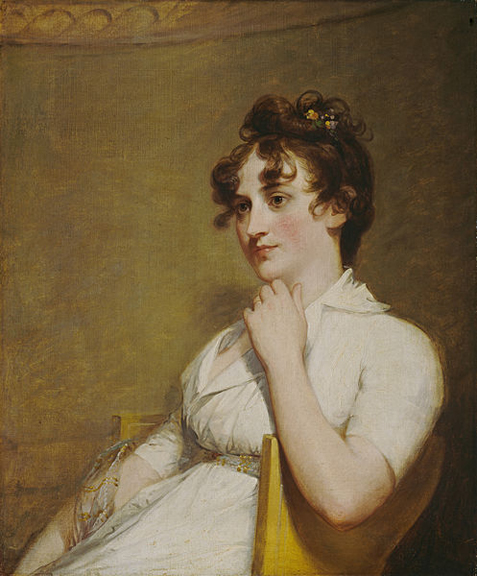
Eleanor “Nelly” Parke Custis began her education with tutors while living with George and Martha Washington at Mount Vernon. At age ten, Nelly moved to New York City with the president and first lady. Excited by New York life, Nelly was “a little wild creature” who “spends her time at the window looking at carriages.”22 She attended Isabella Graham’s school where the curriculum included reading, writing, spelling, grammar, embroidery, arithmetic, geography, drawing, music, dancing, and the French language. She also had private lessons in music, dance, and drawing. “Practicing very long and very unwillingly at the harpsicord, the poor girl would play and cry, and cry and play, for long hours, under the immediate eye of her grandmother, a rigid disciplinarian in all things.”23 At age nineteen, Nelly married thirty-two-year-old Lawrence Lewis, son of George Washington’s sister, Elizabeth. Washington gave the couple the 2,000-acre Dogue Run Farm, together with a mill and distillery and “sufficient cash to establish a home in accord with their tastes and social standing.”24
Samuel Washington was George Washington’s full brother, younger by two years. Samuel married five times and sired nine children before he succumbed September 1781 to tuberculosis at age forty-seven. George and Martha Washington took over the care and education of George Steptoe, Lawrence Augustine, and Harriot, children of Samuel by his fourth wife, Anne Steptoe.
After Washington became president, despite his great national responsibilities, he spent much time settling his nephews into schools to be educated in accordance with his high expectations, and appropriate to their standing in society. George and Lawrence entered William McWhir’s academy in Alexandria to study English, Latin, geography and attend twice-weekly dance classes. They boarded in the home of merchant Samuel Hanson.25 The authoritarian Hanson was soon in a power struggle with the boys. “I will no longer conceal from you that there have been many disagreements between your nephews and myself,” wrote Hanson to Washington. “The boys had the obstinate habit of keeping company with servants, so that I could never keep them out of the kitchen; to dine with their schoolmates, wearing their best clothes upon common occasions, and staying out late on evenings, and sometimes the whole night.” They were disrespectful towards Hanson and his family. When chastised, the boys showed no “symptoms of penitence.”26
On August 6, 1788, Lawrence fled the Hanson home and returned to Mount Vernon to show his uncle “some bruises he had received.” Washington wrote to Hanson that Lawrence had “arrived at that age and size as to be a fitter subject to be reasoned with than to receive corporal punishment. My primary object in placing these boys with you, was that they should be treated more on the footing of friendship, and as companions, than mere schoolboys.”27
“Any bruises Lawrence may be able to show, were not given by me with design,” explained Hanson to Washington, “but may be the consequences of the struggle which ensued upon my attempt to take him into a room for chastisement. I am certain he did not receive more than 3 strokes, and these with a whip … After the declaration of my intention to flog him, and your approbation of my conduct, I can have no inducement to misstate this matter.” Hanson described Lawrence as a “great sloven” but that George was “of a more obliging, amiable disposition.”28 “If Hanson thinks it is proper to correct Lawrence,” wrote George Steptoe Washington to his uncle on August 8, “I acknowledge that it is not my business to interfere … especially since I know it to be your desire; but it was the manner in which it was done and the instrument with which it was performed that caused my interference.” George came to the rescue of his younger brother when he found the crying boy “on the floor with Hanson on top of him” beating him with a cowhide. George deemed the punishment excessive “for so small a crime.”29
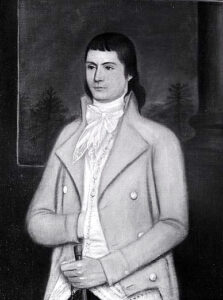
On March 23, 1789, shortly before the start of his first term as president, George Washington told his eighteen-year-old nephew George Steptoe: “You have now arrived to that age when you must quit the trifling amusements of a boy, and assume the more dignified manners of a man … The first and great object with you at present is to acquire, by industry and application, such knowledge as your situation enables you to obtain, and as will be useful to you in life.” In addition, he should avoid idleness and develop “a habit of industry … When you have leisure to go into company that it should always be of the best kind [so that] by this means you will be constantly improving your manners and cultivating your mind while you are relaxing from your books.” Be frugal and live within your means, advised Washington. Pay close attention “to the moral virtues.” If George Steptoe persisted in disobeying, “you may depend upon losing that place which you now have in my affections, and any future hopes you may have from me. But if, on the contrary, your conduct is such as to merit my regard, you may always depend upon the warmest attachment & sincere regard of your affectionate friend & uncle.”30
Washington withdrew his nephews from the Hanson home and placed them with headmaster William McWhir. Again, there was friction between the boys and their landlord. Washington then turned to his close and reliable friend Dr. James Craik to settle his rambunctious nephews. “You will use your best endeavors to obtain the means for support of George Steptoe & Lawrence Washington [and] see that they are decently, and properly provided with clothes from Mr. Porter’s store, who will give them a credit on my becoming answerable to him for the payment.”31 Dr. Craik was up to the task of guiding the boys. “Since they come to live with me,” he wrote to Washington, “they have behaved well. I frequently admonish them and they seem to take it well.”32 A grateful Washington responded: “It gives me pleasure to hear that my nephews are attentive to their studies, and obedient to your orders and admonition. That kind of learning which is to fit them for the most useful and necessary purposes of life, among which are writing well, arithmetic, and the less abstruse branches of the mathematics, ought to be particularly attended to, and it is my earnest wish that it should be so.”33 On October 10, 1790, Washington asked his secretary to enquire “whether much good could be expected from my fixing my nephews George & Lawrence” in the College of Philadelphia. “They are doing but little in Alexandria, having left the study of the languages, and learning French & the mathematics. George & Lawrence are well disposed youths [and] very desirous of improvement. I would wish to know what their studies & board would stand them annually.”34 George Steptoe and Lawrence Washington left Virginia in December 1790 to enroll in the college. George Washington paid “the amount of near five thousand dollars above the sum furnished by their estate” for his nephews’ fees, as well as their board, clothing, firewood for heat, washing and mending. He paid for their music lessons, and gave each boy $1 a week for spending money. Two years later, in 1792, George and Lawrence graduated from college. George Steptoe Washington inherited Harewood Planation. At age twenty-two, he eloped with fifteen-year-old Lucy Anne Payne, the sister of the future First Lady Dolly Madison. Lawrence Augustine Washington married Mary Dorcas Wood.35 Like their father, George and Lawrence suffered from tuberculosis and died young.
Their sister, Harriot Washington, was passed from one relative to another. She came to live at Mount Vernon in 1790 at age fourteen. “She is prone to idleness, & having been under no control, would create all the difficulty,” wrote Washington.36 In 1792 she was sent to live in Fredericksburg with Washington’s sister Betty Washington Lewis. Washington sent money for her support, and Harriot frequently wrote to him asking for more for clothing and to purchase a guitar. In 1796 she married merchant Andrew Addis Parks. “My wish is to see my niece happy,” wrote Washington, continuing,
I offer you my congratulations thereon; and sincerely wish it may prove the source of continual happiness to you. Much of this depends on your own disposition; on a prudent deportment towards your husband; and on the accommodation of your views to his circumstances. . . . Always keep the old adage in remembrance: ‘Take your measure according to your cloth’ and do not, because you see others do so . . . indulge yourself either in dress, or a mode of living that will be productive of embarrassment.37
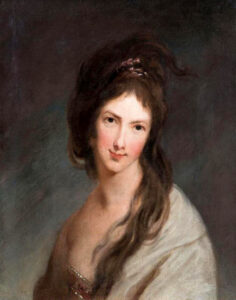
Frances “Fanny” Bassett (1767–1796) was the daughter of Martha Washington’s deceased sister, Anna Maria Dandridge Bassett. Martha Washington took Fanny into the Mount Vernon household. Fanny “is a child to me, and I am very lonesome when she is absent.” In 1785, George Augustine Washington, son of George’s younger brother Charles, married Fanny Bassett. George and Martha Washington gifted the newlyweds two thousand acres of land. Following the death of George Augustine Washington in 1793, Fanny married Tobias Lear, George Washington’s secretary. That marriage was short-lived as she passed away in March 1796 at the age of twenty-nine.
Elizabeth “Betty” Washington was the only sister of George Washington who lived into adulthood. She married Fielding Lewis and bore eleven children. Fielding died in 1781, leaving Betty and her children in financial distress. She turned to her brother for help. At various times, three of her sons, Robert, Lawrence and Howell, served as secretaries to their illustrious uncle and as managers of his properties. In another of the Mount Vernon romances, Lawrence Lewis married Eleanor “Nelly” Parke Custis.
Born in 1771, Howell Lewis was the youngest of Betty’s children. In the spring of 1792 Washington wrote to Betty to ask whether Howell wished “to spend a few months with me, as a writer in my office . . . working from breakfast until dinner, Sundays excepted . . . recording letters, and other papers.” Betty Lewis expressed her misgivings, explaining that her son was “a boy of very slender education.” Howell Lewis spent “his time rather idly, and at the same time, very slenderly provided for by his father,” wrote Washington. “I was in no need of Howell Lewis, but I thought . . . by taking him under my care, I might impress him with ideas, and give him a turn to some pursuit or other that might be serviceable to him hereafter … My family, now Howell is admitted into it, will be more than full, and in truth more than is convenient for the house, as Mr. [Bartholomew] Dandridge (a nephew of Mrs. Washington) is already one of it. There is but one room for him, Howell and another person to sleep in.”38 Howell served the president as a recording secretary until July 1793, when Washington sent him, at £300 a year, to manage Mount Vernon. He gifted Howell with 1,531 acres of bounty land, along the Kanawha River.
Bartholomew “Bart” Dandridge, Jr. (c.1772–1802), was the son of Martha Washington’s brother. Nineteen-year-old Bart joined the president’s household in 1791. Bart was “a young gentleman of an excellent mind . . . but little acquainted with the world. His education has been very limited, but his talent for improvement is great and his industry equal to it. He will make a valuable & useful man. . . . I trust you will exercise your authority as a relation as well as your advisor to enforce on him a proper sense of his duty, & to guard him from being led astray by the temptation to idleness & extravagance.”39 From 1791 to 1796, Bart Dandridge served as secretary to president Washington.
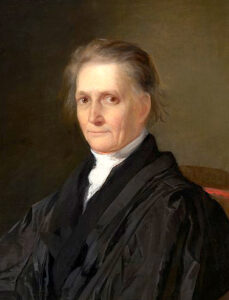
Born in 1762, Bushrod Washington was the son of John Augustine, younger brother of George Washington. After studying at the College of William & Mary, Bushrod served during 1781 in the Revolutionary War. The following year, General Washington wrote to James Wilson, signer of the Declaration of Independence and a leading lawyer in Philadelphia, “A nephew of mine is set at his own desire to study the law. It would give me much pleasure to see him placed under your care.” Wilson demanded 100 guineas to train Bushrod over two years, a sum Washington paid. “Remember it is not the mere study of the law, but to become eminent in the profession,” wrote Washington to Bushrod.40 Bushrod served as lawyer to his uncle in many business transactions. In 1789, President Washington appointed James Wilson to the Supreme Court. After Wilson died in 1798, his successor was his former law student, Bushrod Washington.41 Following the deaths of George and Martha Washington, Bushrod Washington inherited the Mount Vernon Plantation and served as custodian of Washington’s papers.
Washington’s great popularity led to the concern that his presidency would yield to a monarchy. “If General Washington had a daughter,” wrote John Adams to Thomas Jefferson, “she would be demanded in marriage by one of the royal families of France or England, perhaps by both, or if he had a son, he would be invited to come a courting to Europe.”42 The childless George Washington harbored no desire to become king or establish a family dynasty. Instead, after completing his second term as president he returned to private life, to become, for all time, Father of the American People.
1 Ron Chernow. Washington: A Life (New York: Penguin, 2010).
2 The Papers of George Washington, Colonial Series, vol. 8, 24 June 1767–25 December 1771, ed. W. W. Abbot and Dorothy Twohig (Charlottesville: University Press of Virginia, 1993), 89–91.
3 Ibid., 122–125.
4 Ibid., 413–417.
5 Jonathan Boucher to George Washington May 9, 1770, https://www.loc.gov/item/mgw443216/.
6 The Papers of George Washington, Colonial Series, 8:348–349.
7 The Papers of George Washington, Colonial Series, vol. 9, 8 January 1772–18 March 1774, ed. W. W. Abbot and Dorothy Twohig (Charlottesville: University Press of Virginia, 1994), 209–211.
8 Ibid., 219–220.
9 The Papers of George Washington, Revolutionary War Series, vol. 16, 1 July–14 September 1778, ed. David R. Hoth (Charlottesville: University of Virginia Press, 2006), 77–80.
10 Ibid., 230–232.
11 The Papers of George Washington, Retirement Series, vol. 4, 20 April 1799–13 December 1799, ed. W. W. Abbot (Charlottesville: University Press of Virginia, 1999), 479–511.
12 The Papers of George Washington, Confederation Series, vol. 1, 1 January 1784–17 July 1784, ed. W. W. Abbot (Charlottesville: University Press of Virginia, 1992), 257–259.
13 George Washington Parke Custis, Reminiscences and Personal Memoirs of Washington (New York: Derby & Jackson, 1860), 83.
14 Papers of George Washington, Confederation Series, vol. 3, 19 May 1785–31 March 1786, ed. W. W. Abbot (Charlottesville: University Press of Virginia, 1994), 348–351.
15 Papers of George Washington, Presidential Series, vol. 8, 22 March 1791–22 September 1791, ed. Mark A. Mastromarino (Charlottesville: University Press of Virginia, 1999), 50–53.
16 Papers of George Washington, Retirement Series, vol. 2, 2 January 1798–15 September 1798, ed. W. W. Abbot (Charlottesville: University Press of Virginia, 1998), 4–6.
17 George Washington Parke Custis, Recollections and Private Memories (Philadelphia: Bradley, 1861), 73.
18 The Papers of George Washington, Retirement Series, vol. 1, 4 March 1797–30 December 1797, ed. W. W. Abbot (Charlottesville: University Press of Virginia, 1998), 249–250.
19 Ibid., 1:266–267.
20 Ibid., 153–154.
21 Papers of George Washington, Retirement Series, 2:525–526.
22 Thomas B. Allen. 1789 (Lanham, UK: Rowman & Littlefield, 2023), 93.
23 Custis, Recollections and Private Memories, 408.
24 Minnie K. Lowther, Mount Vernon: Its Children and Romances (Chicago: Winston, 1930), 133.
25 The Papers of George Washington, Confederation Series, vol. 4, 2 April 1786–31 January 1787, ed. W. W. Abbot (Charlottesville: University Press of Virginia, 1995), 544–545.
26 Ibid.
27 Papers of George Washington, Confederation Series, vol. 6, 1 January 1788–23 September 1788, ed. W. W. Abbot (Charlottesville: University Press of Virginia, 1997), 429.
28 Ibid., 6:431–432.
29 Ibid., 6:433–434.
30 The Papers of George Washington, Presidential Series, vol. 1, 24 September 1788–31 March 1789, ed. Dorothy Twohig (Charlottesville: University Press of Virginia, 1987), 438–441.
31 Ibid., 472–476.
32 The Papers of George Washington, Presidential Series, vol. 3, 15 June 1789–5 September 1789, ed. Dorothy Twohig (Charlottesville: University Press of Virginia, 1989), 529–531.
33 The Papers of George Washington, Presidential Series, vol. 4, 8 September 1789–15 January 1790, ed. Dorothy Twohig (Charlottesville: University Press of Virginia, 1993), 1–2.
34 The Papers of George Washington, Presidential Series, vol. 6,1 July 1790–30 November 1790, ed. Mark A. Mastromarino (Charlottesville: University Press of Virginia, 1996), 547–549.
35 From George Washington to Lawrence Augustine Washington, 3 September 1797. The Papers of George Washington, Retirement Series, 1:335–336.
36 The Papers of George Washington, Presidential Series, 6:547–549.
37 The Papers of George Washington, Presidential Series, vol. 20, 1 April–21 September 1796, ed. David R. Hoth and William M. Ferraro (Charlottesville: University of Virginia Press, 2019), 444–445.
38 George Washington to Charles Carter of Ludlow, 19 May 1792. The Papers of George Washington, Presidential Series, vol. 10, 1 March 1792–15 August 1792, ed. Robert F. Haggard and Mark A. Mastromarino (Charlottesville: University of Virginia Press, 2002), 397–398.
39 John Dandridge to Martha Washington, September 6, 1791, marthawashington.us/items/show/456.html.
40 George Washington to Bushrod Washington, January 15, 1783, founders.archives.gov/documents/Washington/99-01-02-10429.
41 Gerard N. Magliocca. Washington’s Heir: The Life of Justice Bushrod Washington (New York: Oxford University Press, 2022), 9-12.
42 The Papers of Thomas Jefferson, vol. 12, 7 August 1787–31 March 1788, ed. Julian P. Boyd (Princeton: Princeton University Press, 1955), 220–221





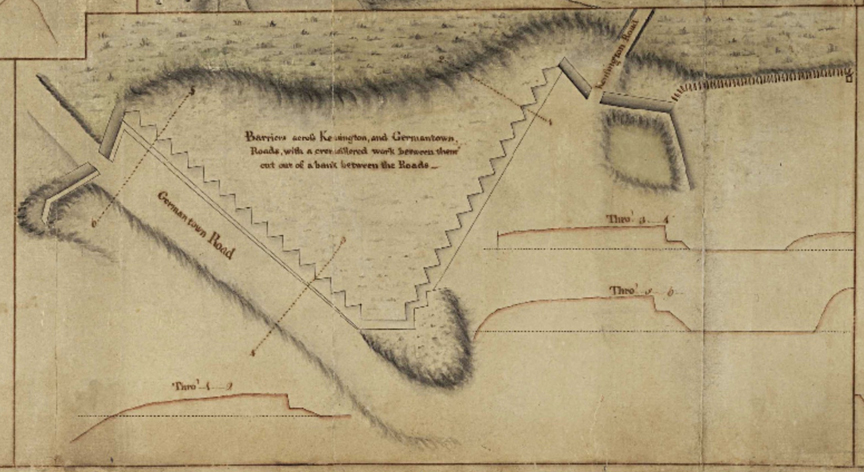
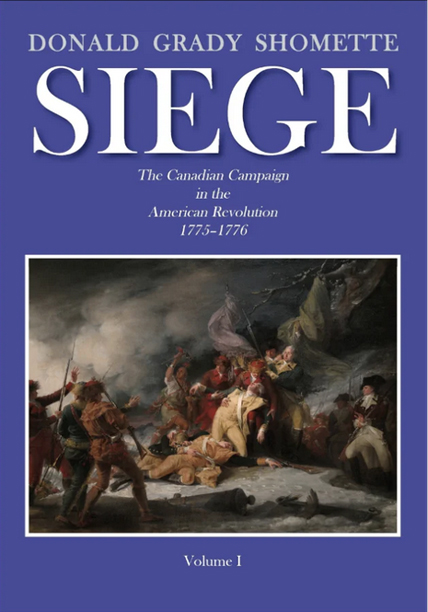


One thought on “George Washington as Parent”
A superb account of an overlooked area of Washington’s life. I was especially impressed that Washington understood the futility of corporal punishment, but failed to combat the corrupting power of privilege.